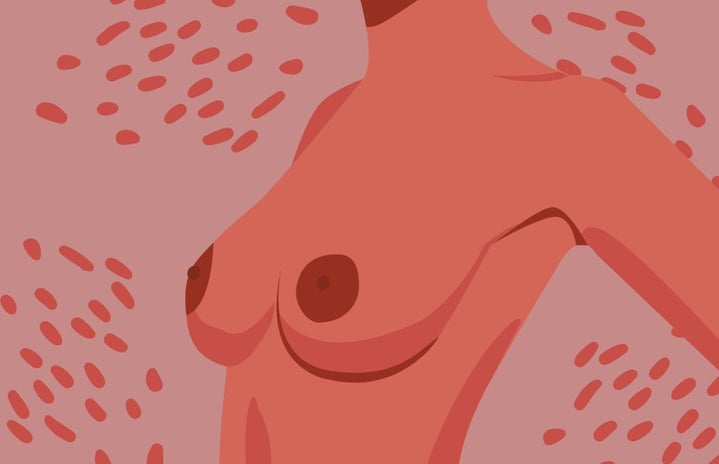If you didn’t know this already, in 2019, Brazil was declared to be the country that performs the most plastic surgeries in the entire world, according to the International Society of Aesthetic Plastic Surgery (ISAPS). The procedure’s done over 1 million times every year, 13% of the total number worldwide. Of this amount, approximately 15% are silicone implants, which is at the top of the list. So, if the surgery is so common, and so many people do it, why are we talking about the explants, not the implants?
Well, that’s because only in 2020, 25 thousand women chose to take their prosthesis off, 31% more than the year before, 2019, and the number is only getting higher. The real question to be investigated is: what are the reasons these women are opting to do so? Are beauty standards changing? Are people accepting their bodies as they are? Or is it deeper than we can possibly imagine?
It is true, in fact, that what we know as “perfection” is transitioning completely. The “body positive” effect is revolutionizing the industry, and modifying the way people see their own features. Even celebrities, such as the model Victoria Beckham, are changing their minds about procedures. In an interview for British Vogue, Beckham talked a little bit about how she regrets her implants and how she was influenced by other people to get a boob job. Bruna Marquezine, a prestigious Brazilian actress, declared as well that she has insecurities indeed, but prefers to stay in her natural form.
The Kardashians, considered to be the main “queens” of plastic surgery, as the years went by, were accused many times of having some of their surgeries reversed to more “natural” shapes. This means that almost all the beauty role models that girls have today are choosing to accept their anatomy – or just pretend that they do – which could be one of the reasons why so many women are giving up the chances of getting procedures done or, at least, going for less superficial sizes of implants.
What is “Silicone disease”?
However, that’s not all, it’s been a while since many women on the internet started talking about regretting their operations and complaining about having symptoms of the Autoimmune Syndrome Induced by Adjuvants (ASIA) after getting silicone implants. The disorder is basically a predisposition that could be stimulated if the body doesn’t recognize a product used in a procedure. In this case, it’s the silicone prosthesis, which originates the name of the infirmity: “silicone disease”.
Some Brazilian influencers like Evelyn Regly, Fiorella Mattheis and Amanda Djhedian were a few of the women who decided to take the prosthesis off and speak about it. In a video for her own channel on YouTube, Evelyn declared: “I started having a lot of symptoms that I didn’t have before [the surgery], so I decided that I didn’t want the silicone anymore”. It is important to point out that, even though a lot of patients defend that they have the disease, there is no scientific proof that the illness actually exists, which means that doctors can’t give this type of diagnosis yet.
Regly also had other issues with the prosthesis, such as the capsular contracture, an inflammatory response that creates a membrane evolving the silicone to “protect” the body against it, like an “internal scar”, and it causes pain and discomfort. The encapsulation is the most common complication of the procedure and affects 4% of the patients, according to a study written by the Brazilian Journal of Plastic Surgery.
After cases like hers came to light, non-famous women also decided to pronounce their own stories, specially on social media, like the Instagram profile “@explantedesilicone”, created by Larissa de Almeida, who had an experience with silicone explantation herself.
The architecture Sandra Regina, which had to go through 3 surgeries overall to exchange the prosthesis after all of them ruptured, when asked by Her Campus about her story with implants, and if she recommends it to other girls, said: “No, I would never recommend unless the person is emotionally unstable and can’t live without it, like in cases of breast cancer”. “I wouldn’t say that the experience traumatized me, but on the day of the last procedure I got really scared and had panic attacks. I had to reschedule the surgery, and only made it into the OR five months later”, she added.

When the subject is Self-Esteem
Yet, silicone implants procedures are the majority of plastic surgeries out there, and, gladly, most of the patients don’t present any problems whatsoever. In reality, the plurality of the reports are positive, especially when the subject is self-esteem. “When I wore bikinis, there were days that I felt insecure. Depending on the picture, I edited my breasts to adjust a little bit. And I thought: ‘I’ve got the opportunity to do it, so why not?’. I didn’t imagine the results could be so natural and I’m really happy with it”, stated Flavia Pavanelli, another acclaimed Brazilian influencer and actress, to the podcast Eu Fico Loko about her operation.
The YouTuber Lu Ferreira, in 2017, after 8 years of getting her first pair of silicone implants, chose to exchange the prosthesis, which she thought that was too big, to smaller ones, but didn’t change her mind about enjoying her new breasts: “I simply wasn’t happy, I didn’t wear or do the things that I wanted, it (her breasts) was a limitation. I needed this.”
The method is, overall, pretty safe, and has been studied by medical practitioners for about 60 years now, which means that techniques and products used during the process have been and still are evolving. To the health staff, globally speaking, the surgery is recommended to anyone who feels the need to. Nevertheless, if you are thinking about getting implants, it is important to talk to a trustful doctor about the pros and cons and also look for the opinions of other people that already have some experience living with silicone, to make sure you are making the right decision.
———————————————
The article above was written by Manuela Miniguini and edited by Amanda Moraes.
Liked this type of content? Check out Her Campus Cásper Líbero home page for more!


